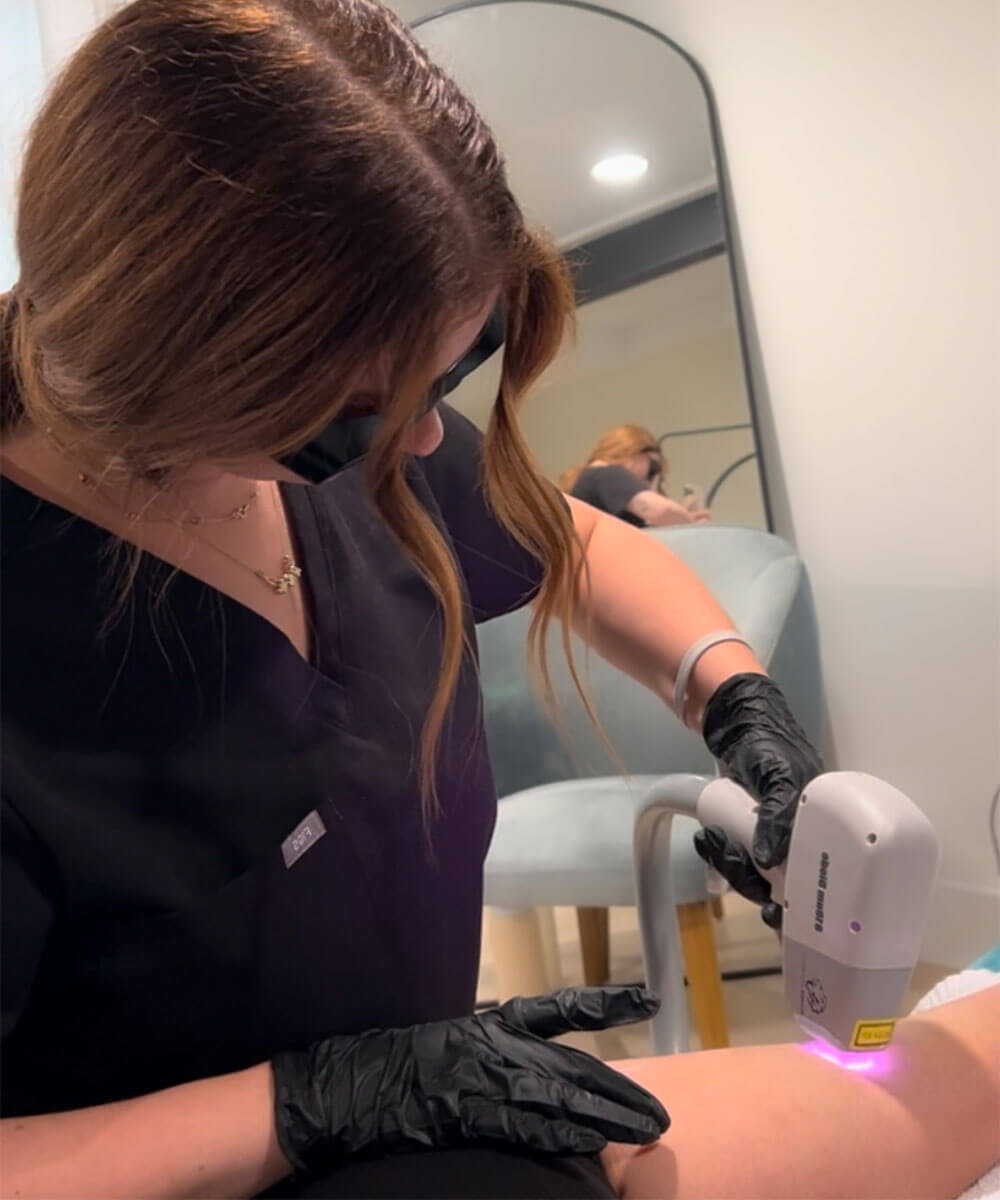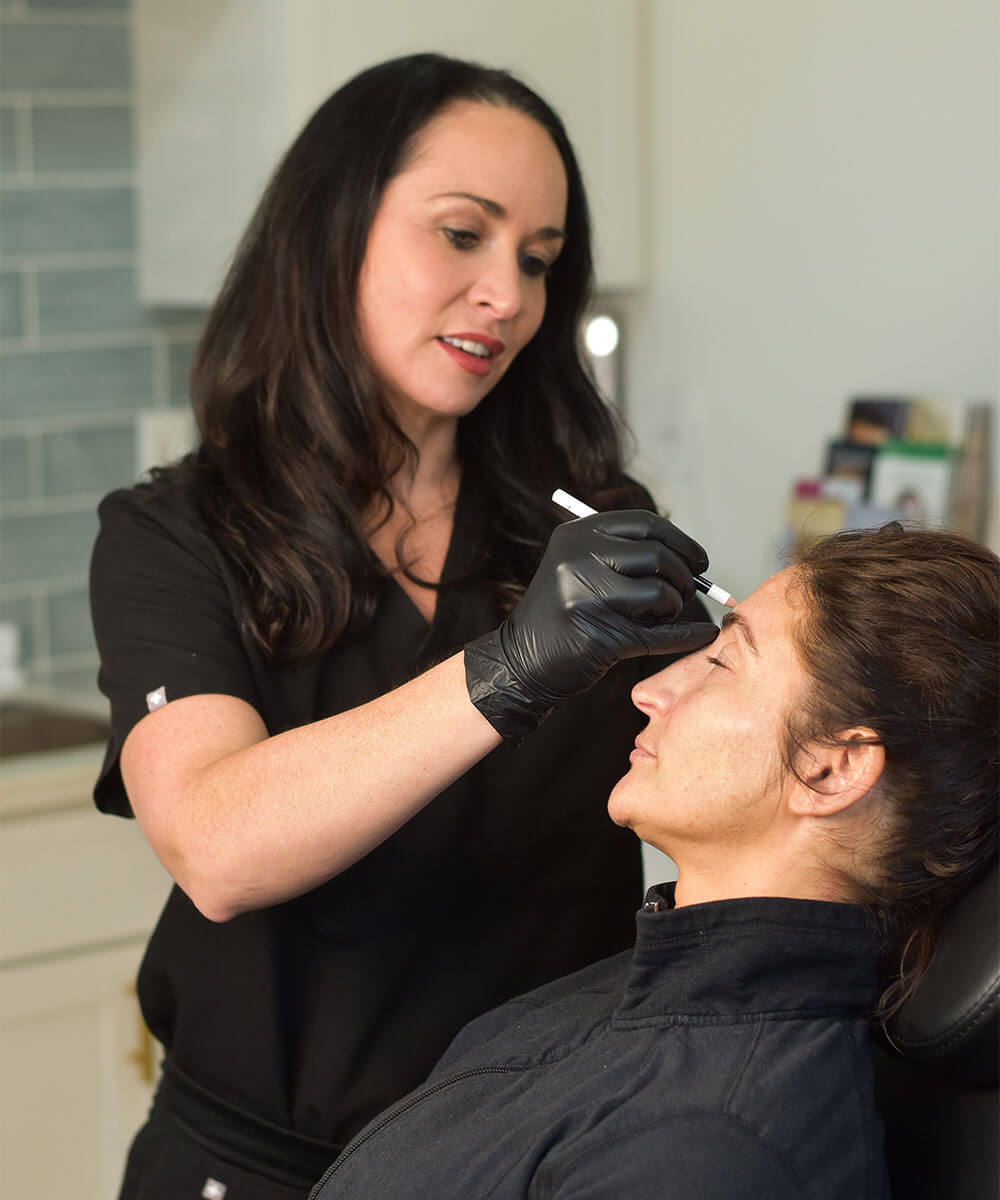
Last Updated: 02/24/2025
Written by: Lauren Lund, APRN-CNP
Reviewed by Laurianne Scot, DO, Board Certified Gynecologist
Understanding the Signs and Symptoms of Menopause
Menopause is a natural phase in a woman's life, marking the end of her reproductive years. It typically occurs between the ages of 45 and 55, though it can vary greatly for each individual. While the transition can be empowering and liberating, it can also bring about a variety of physical and emotional changes. Recognizing the signs and symptoms of menopause can help you better navigate this phase and seek appropriate care when needed.
In this blog post, we will explore the most common signs and symptoms of menopause and offer some insights into managing this transition with greater ease.
What Is Menopause?
Menopause is defined as the cessation of menstrual periods for 12 consecutive months in an age appropriate female (typically in late 40s to early 50s), signaling the end of a woman's fertility. It occurs due to a decline in the production of hormones like estrogen and progesterone, which play crucial roles in regulating the menstrual cycle and other bodily functions. Menopause can be categorized into three phases:
- Perimenopause: The transition leading up to menopause, often starting in a woman's 40s. This phase can last anywhere from a few months to several years.
- Menopause: The point at which an age appropriate woman (typically late 40s to early 50s) has gone 12 months without a menstrual period.
- Postmenopause: The years following menopause when some symptoms may start to subside, but the long-term health effects of decreased hormone levels may continue.
Common Signs and Symptoms of Menopause
While every woman’s experience with menopause is unique, the following symptoms are among the most commonly reported:
1. Irregular Periods
In the years leading up to menopause, many women experience changes in their menstrual cycle. Periods may become heavier or lighter, more frequent or less frequent, and some may be skipped altogether. Eventually, periods will stop entirely once menopause is reached.
2. Hot Flashes
Hot flashes are perhaps the most iconic symptom of menopause. These sudden feelings of intense heat, often accompanied by sweating and redness in the face or chest, can last anywhere from a few seconds to several minutes. They may occur during the day or night and can sometimes disrupt sleep. Night sweats, a type of hot flash that occurs at night, can leave women feeling drenched in sweat and interfere with rest.
3. Sleep Disturbances
Many women report having trouble falling asleep or staying asleep during perimenopause and menopause. Hot flashes and night sweats are often to blame, but hormonal changes can also impact sleep quality, leading to more frequent awakenings or difficulty entering deep sleep.
4. Mood Swings and Emotional Changes
Fluctuating hormone levels during menopause can trigger mood swings, irritability, and feelings of anxiety or depression. Some women may feel more emotional than usual, or experience changes in their sense of well-being. It’s not uncommon for menopause to exacerbate conditions like pre-existing anxiety or depression, so emotional health should not be overlooked during this time.
5. Vaginal Dryness and Discomfort
A decrease in estrogen levels can lead to vaginal dryness, thinning of the vaginal walls, and reduced lubrication, which may make sexual intercourse uncomfortable or even painful. Some women also experience a decrease in libido. These symptoms can impact intimacy and relationships, but there are treatments available, such as topical lubricants or estrogen therapy, to manage these issues.
6. Changes in Skin, Hair, and Nails
As estrogen levels drop, many women notice changes in their skin, hair, and nails. Skin may become drier, thinner, and more prone to wrinkling. Hair may lose volume, become thinner, or even fall out. Nails may become more brittle and prone to splitting. Proper skin and hair care can help, but it’s also important to discuss these changes with your healthcare provider if they become troubling.
7. Weight Gain and Changes in Metabolism
Many women experience weight gain during menopause, particularly around the abdomen. This can be attributed to hormonal fluctuations that affect metabolism, combined with lifestyle changes such as reduced physical activity or changes in diet. Maintaining a balanced diet and regular exercise routine can help manage weight and improve overall well-being.
8. Memory and Concentration Problems
Some women report experiencing “brain fog” during menopause. This can manifest as difficulty concentrating, forgetfulness, or feeling mentally sluggish. While this symptom is often temporary, it can be frustrating and affect daily life. Staying mentally active, practicing mindfulness, and getting enough rest may help alleviate some of these cognitive symptoms.
9. Joint and Muscle Pain
As estrogen levels decline, some women may experience joint pain, stiffness, or muscle aches. These symptoms can be particularly noticeable in the hands, knees, and back. Regular physical activity, stretching, and strength training can help improve joint mobility and reduce discomfort.
10. Decreased Bone Density
After menopause, women become more susceptible to bone loss due to decreased estrogen levels. This can lead to osteoporosis, a condition that makes bones more fragile and prone to fractures. Weight-bearing exercises, calcium-rich foods, vitamin D supplements, and potentially hormone therapy are essential to maintaining bone health during and after menopause.
Managing Menopause Symptoms
While menopause is a natural life stage, its symptoms can be very challenging for some. Fortunately, there are several ways to manage symptoms and maintain your quality of life:
- Lifestyle Changes: Regular exercise, a healthy diet, and good sleep hygiene can help reduce the severity of menopause symptoms. Managing stress through mindfulness, yoga, or relaxation techniques can also make a big difference.
- Hormone Replacement Therapy (HRT): HRT is a medical treatment that involves supplementing the body with estrogen and/or progesterone to alleviate menopausal symptoms. Consult with your MOBO provider to determine if hormone replacement therapy is right for you. MOBO Medical Spa offers hormone pellets, oral micronized progesterone, and creams.
- Non-Hormonal Medications: For women who cannot or prefer not to use HRT, there are non-hormonal medications that can help with symptoms like hot flashes and mood changes. Talk to your doctor about these options which may include medications such as Veozah.
- Alternative Therapies: Some women may find relief from symptoms through acupuncture, herbal supplements (like black cohosh), or mindfulness practices such as meditation. However, always talk to your doctor before starting any new treatments.
When to See a Provider
While menopause is a natural transition, it’s important to seek medical advice if you experience severe symptoms or if any of your symptoms significantly affect your quality of life. Your doctor can help determine the best course of action and rule out other potential health issues that may mimic menopausal symptoms.
Conclusion
Menopause is a transformative time, and while the symptoms can be challenging, they are part of a normal biological process. Understanding what to expect, how to manage symptoms, and when to seek professional help can make this transition smoother and more manageable. Embrace this new phase with awareness and self-care—after all, menopause marks the beginning of a new chapter in life, one filled with potential for growth and empowerment.







